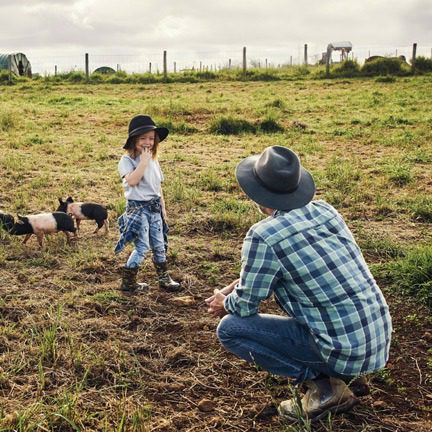(NC) Running a small farm with a garden and animals such as chickens, goats and pigs can be very rewarding. For many of us, it’s both a therapeutic experience and a way to be more sustainable and self-sufficient. But it can also be daunting, and if you’re new to the world of hobby farming, there are countless things to consider.
Here are five key tips to remember:
- Do your research
Whether you’re just starting out or expanding your existing setup, it’s important to make sure you know what you’re getting into. Educate yourself on the crops and animals you might be thinking about having on your farm and get to know the laws and best practices in your area. Online research and courses can help get you up to speed. - Expect the unexpected
Though research is crucial, it’s also important to stay flexible. On a farm, not everything happens the way you plan, so a positive experience depends on being flexible and staying open to adjusting your plan. Even if you follow all the guidelines for planting a certain crop, it may not grow the way you hoped. Taking care of certain kinds of animals may be more work than you expected. Write down what you do each season so you can keep track of what works for you from one year to the next. - Get to know other farmers
Community is the core of sustainability and self-sufficiency, and that’s what drives many of us to the hobby farm life. So, try to get to know nearby farmers—with big and small farms. Ask for their advice and offer to help out on their land so you can learn from their experience. - Learn to DIY and know when to call a pro
There’s always maintenance to take care of on a farm. As you build your skillset and confidence, it can be tempting—and often quite doable—to tackle many repairs yourself. Just remember that it’s best to call in the professionals for certain tasks. Even a small mistake with electrical or highly complex mechanical work could cost you more and create much bigger problems. - Follow biosecurity protocols
Whether you have 1 animal or 100, it’s critical to maintain good on-farm health and safety practices. For instance, it’s illegal to feed pigs meat or products containing meat—even pet food. Though it might be economical and even customary to feed your pigs scraps from the table, it could actually put their health—and the health of pigs in nearby farms and across the country—at risk.That’s because even small amounts of contaminated raw, cooked or frozen food scraps can infect your pigs with animal diseases such as African swine fever (ASF). Though ASF doesn’t affect humans, it’s extremely contagious and deadly for pigs. It could spread rapidly across the country if an outbreak were to happen in Canada.
Find more information on health measures for your farm at inspection.gc.ca/asfbiosecurity.

